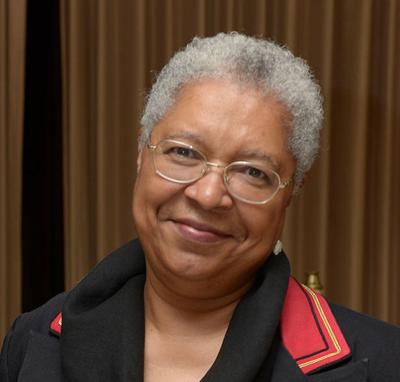According to the National Center for Health Statistics (NCHS), only 9.5% of Black Americans received mental health counseling or therapy in 2020.
To help tackle this disparity, the Black Clergy of Philadelphia and Vicinity hosted a forum Thursday evening entitled “Taking Care of Us: Identifying and Responding to Mental Health Crises in African Amercian Communities.”
The virtual panel discussion’s goal was to honestly confront issues of mental and emotional health for people of color. The panelists included psychologist Melinda Contreras-Byrd and licensed marriage and family therapist Anne Colley. Black Clergy President Rev. Robert Collier and Black Clergy Health Committee Chairperson Rev. Jay B. Broadnax kicked the panel off with prayer and remarks.
The panel, moderated by Temple University alum Brandon R. Brown, discussed how the need for mental health services has tripled, even with people who haven’t had any previous issues.
“Due to the pandemic, all of the things therapists have told clients to make themselves better were taken away,” Contreras-Byrd said. “Being close to people, physical touch and things that gave us security. Then everyone was in masks and people started dying.”
Contreras-Byrd also said that the impact of COVID-19 surpassed the trauma responses brought up by both Sept. 11 and Hurricane Katrina shattering the whole concept of safety.
Colley said that everybody needs to see a therapist at some point in their lives.
“Just like we go to the doctor for checkups, we should do so for the mental part of our bodies,” she said.
Avoiding those necessary appointments are nothing new but Colley said that the mass quarantine suspended coping mechanisms.
“There were outlets like going to the bar, dancing, etc. People could travel or hang out to distract themselves,” she said.
Colley said she saw clients with relationship issues, sadness and loneliness that were previously ignored. In addition, she said she is very concerned about adolescents suffering from anxiety and depression as they relied on consistency and the predictability of being in school.
“Interaction, socializing, and spending time with friends is an important part of developing as a child,” Colley said.
With the stigma that communities of color are anti-self care, the panel was asked of the reasons why, many of which are deep-rooted. “Certainly, the experience of slavery was a clear reason”, Contreras-Byrd added. “We were told to think that down time was not due to us or deserved”.
Colley agreed there is a pathological thought that has been passed down from being enslaved and also living in a systemically racist society.
“There is no post-traumatic stress disorder (PTSD) with us. It is continual, CTSD. Most African Americans in particular are not at the place of thriving, we are surviving.”
Colley explained that even the Black upper and middle class people who have “made it” are still in survival mode partly due to the percentage of Black wealth in the nation going virtually unchanged since emancipation.
Brown and Broadnax called for solutions within and outside of the church to close the gap in Black mental health care.
“Pastors should be transparent with their own walk and struggle and bring in professionals to help answer questions from they’re congregations, Colley said. “There are also many examples within the word to go by.”
Contreras-Byrd said people tend to follow the leader. “Even though I am a therapist and a preacher, I also go to therapy,” Byrd said.
For more information on the Black Clergy of Philadelphia and Vicinity or to access a recording of the panel discussion, to go the Black Clergy’s Facebook page at https://www.facebook.com/blackclergyphilly.








(0) comments
Welcome to the discussion.
Log In
Keep it Clean. Please avoid obscene, vulgar, lewd, racist or sexually-oriented language.
PLEASE TURN OFF YOUR CAPS LOCK.
Don't Threaten. Threats of harming another person will not be tolerated.
Be Truthful. Don't knowingly lie about anyone or anything.
Be Nice. No racism, sexism or any sort of -ism that is degrading to another person.
Be Proactive. Use the 'Report' link on each comment to let us know of abusive posts.
Share with Us. We'd love to hear eyewitness accounts, the history behind an article.